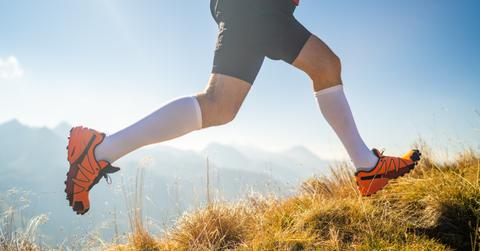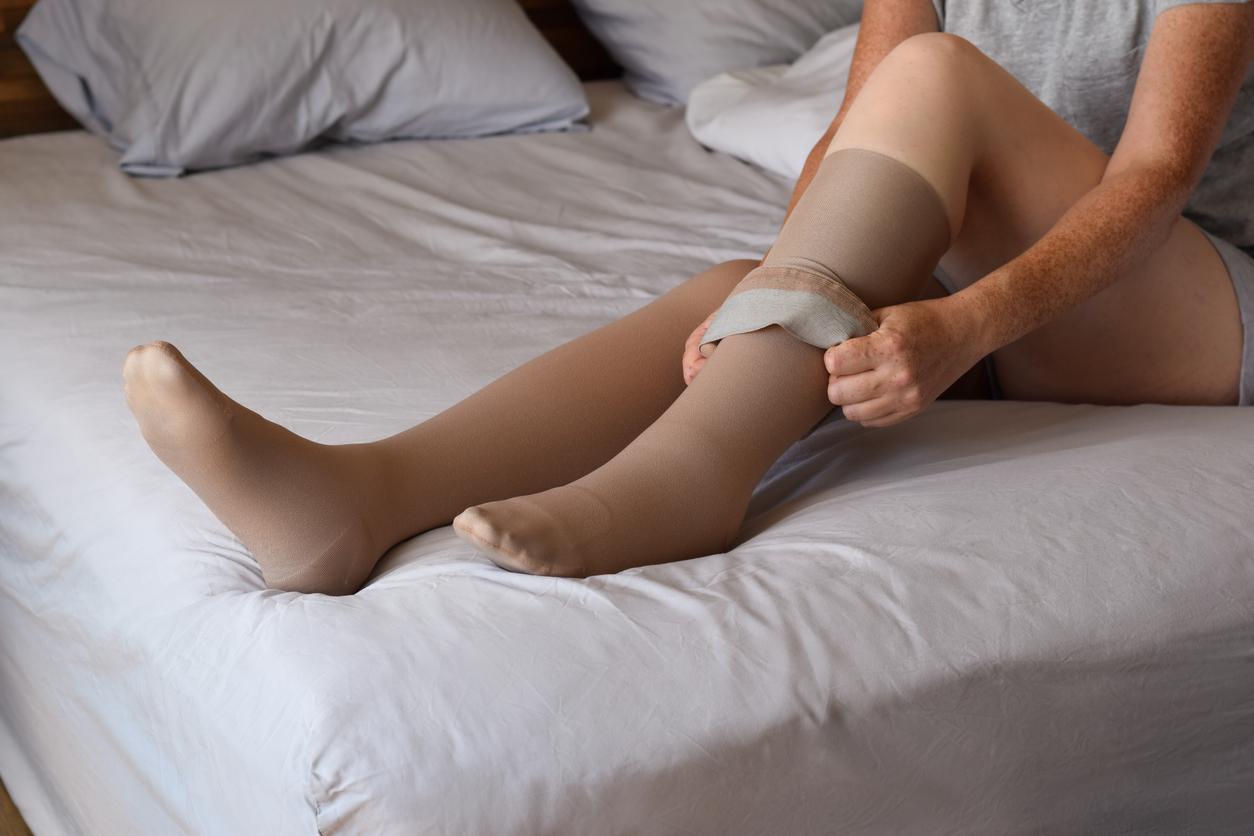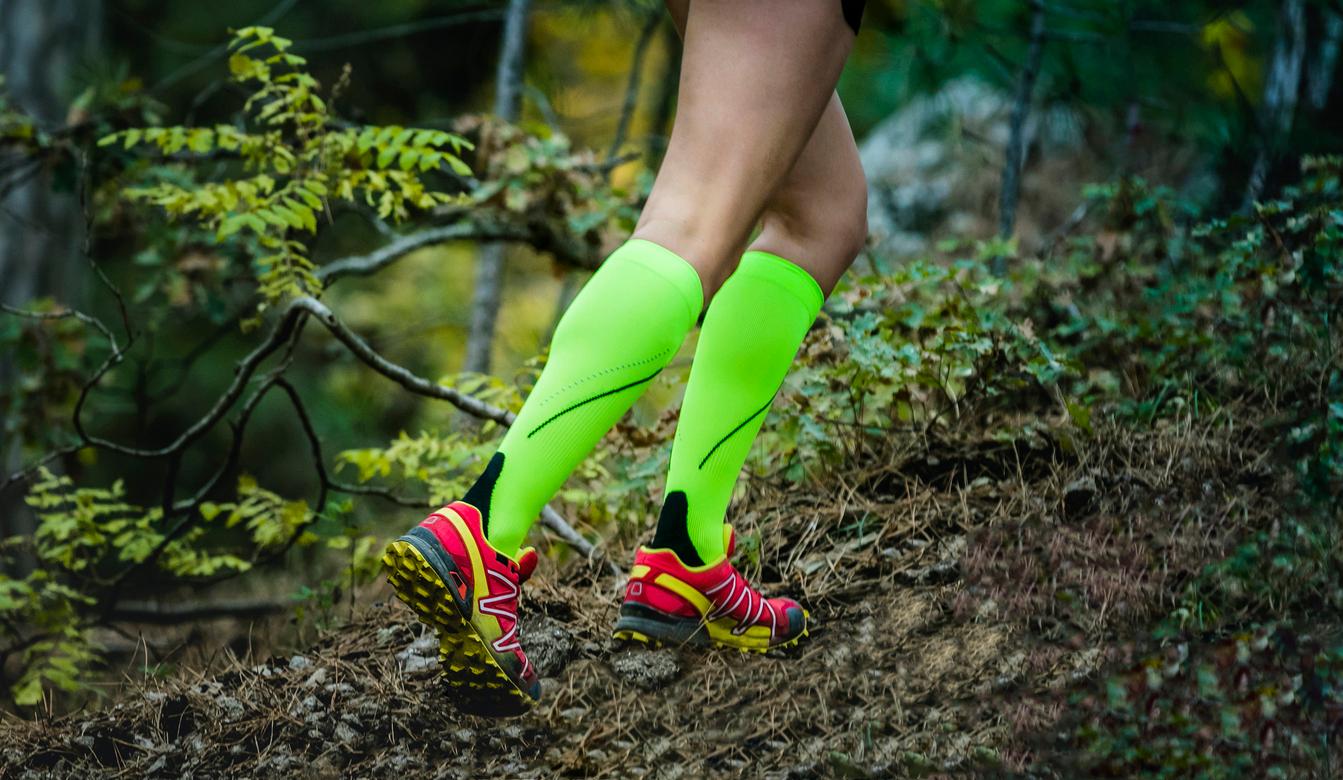These 5 Benefits of Compression Socks Have Us Running to Buy Our Next Pair
Compression socks may support blood flow in those who wear them.
Published Oct. 28 2024, 4:59 p.m. ET

Rumor has it that the best compression socks will not only help you physically but can also make you excited for your next mental health walk.
With new and unique wellness trends springing up all the time, it's important to differentiate what actually works for your body from a fad that might not be backed up by scientific evidence. Thankfully, the reviews are in, and it seems that compression socks — along with shoes fitted to your needs — can help you move and feel better.
However, as always, consult with a podiatrist and trusted primary care doctor before changing up your medical regimen.
That said, we've listed five interesting benefits below to show how compression socks can help those who need them.
Compression socks may support those with swollen legs.

For individuals experiencing medical issues in their legs related to blood flow, trauma to the veins, inflammation, and other issues, compression socks and compression stockings are believed to be one aid, according to a Cleveland Clinic resource.
If you or a family member are experiencing these issues, it is important to consult a doctor to determine if compression socks can safely be used to mitigate some of the symptoms. Per the Cleveland Clinic, compression socks help blood flow more easily and reduce leg swelling.
Those who get lightheaded easily may benefit from compression socks.

According to a medically reviewed article in Health, compression socks may prevent the dizzy feeling and lightheadedness some individuals suddenly feel when standing. The science here relies on compression socks supporting more efficient blood flow and the prevention of lymphatic fluid from pooling all in one area.
Per Health, those with an autonomic nervous system disorder, low blood pressure that gets even lower upon standing up, and other medical diagnoses and conditions can all benefit from this feature of compression socks. If you notice a dizzy feeling when suddenly standing or moving, it is important to consult a physician to assess if compression socks could help.
Compression socks might improve your athletic performance.

It's not uncommon to see long-distance runners donning compression socks during races and practice runs. Per Health, compression socks are believed to bolster overall athletic performance, support one's endurance, and aid in the recovery process.
The mechanisms by which compression socks accomplish all of these purported benefits aren't fully known, per the source, though they propose the socks aid in avoiding the buildup of lactic acid.
Compression socks may help those sitting for hours on planes.

Compression socks have been recommended to some of my family members who travel frequently on planes and expect to be sitting for hours on end. It should be noted that this strategy isn't unanimously agreed upon as imperative, though per the American Heart Association, it is worth a shot to see if it can improve the flying experience for some individuals.
According to the American Heart Association, it's unknown precisely how much compression socks may help those flying on a plane. However, as a mitigation strategy for blood clots developing while flying on a plane, compression socks may play a role in supporting one's health when traveling.
Compression socks may help with sciatic nerve pain.

According to the Texas-based Innovative Therapy PC, compression socks may have a place in the arsenal for those suffering from sciatic nerve pain. The idea is that compression socks help with circulation, putting less of a burden on the nerves that may be out of sorts with sciatic pain.
Combined with wearing other compression clothing on the legs, I have experienced some sense of relief thanks to compression wear after my physical therapist recommended this strategy.